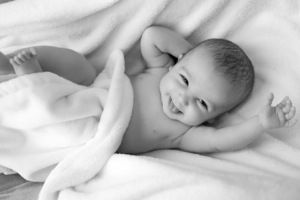News
Doubling up or double-barrelling: nearly all newborn Danes have a unique name
This article is more than 7 years old.
The tendency to give kids the family names of both parents, sometimes via hyphenation, means the odds of finding someone with the exact same name are decreasing … slowly

Named after his mother and the great-grandfather who died in 1864 (photo: Pixabay)
You have to feel sorry for Lars Peter Jensen. There are 52 of them, and that’s just on the telephone number database krak.dk. Googling themselves must be a nightmare.
For generations, Danes have been giving their children traditional names and passing on their father’s surnames, with little thought for how difficult it can be trying to track down a person who shares their name with hundreds or even thousands of others.
But now they would have appeared to learned their lesson, as 97 percent of newborns have unique names. Not only are parents choosing rarer christian names, they are also picking two family names, sometimes going back four or five generations back to find a ‘middle name’ that will make them stand out.
READ MORE: Most popular baby names of 2017 revealed
Doubling up
Double-barreled names are also in the ascendancy as parents choose to fashion a surname out of both of theirs.
In 1982, the name law was changed so that the last name of the mother and father were equal, which meant that both genders could choose the other’s last name in marriage.
The latest name law from 2005 further expanded the possibilities and today couples are free to pick all the last names that a member of the two families have had within the last four to five generations.
So while Søren, Jesper, Steen, Jytte, Aase and Inger are being waylaid for the likes of Chillie, Knirke, Pandora, Earth and Dream, it is mainly through the surnames that more Danes with unique names are being born.
READ MORE: Nielsen remains Denmark’s most common last name
So long, Lars Jensen
Still, the Danes are not as original as they might think. About a million of them are still named Nielsen, Jensen, Hansen, Pedersen or Andersen. Meanwhile, William and Ida were the most popular names for newborns last year.










































